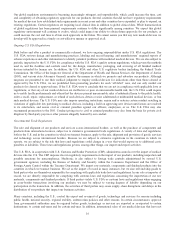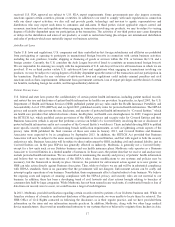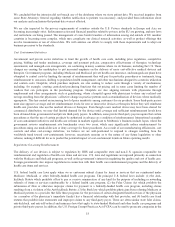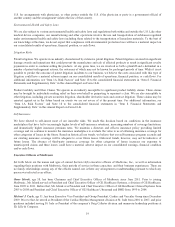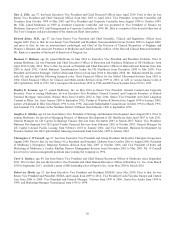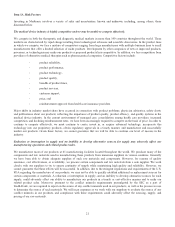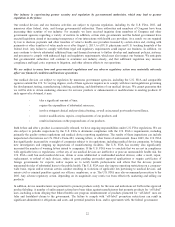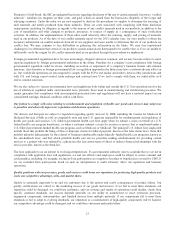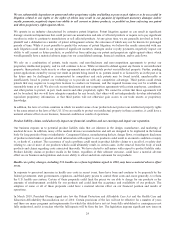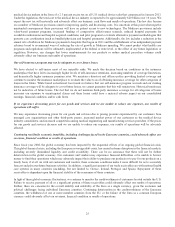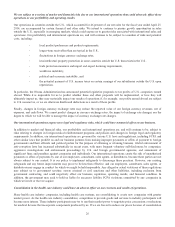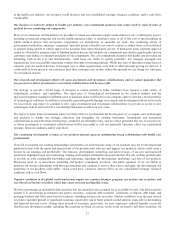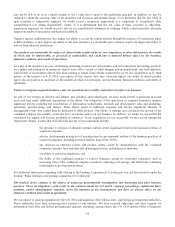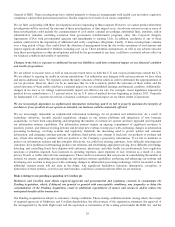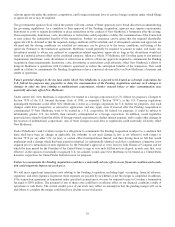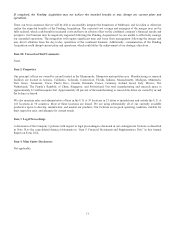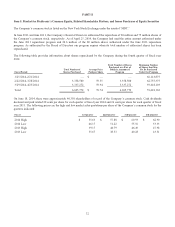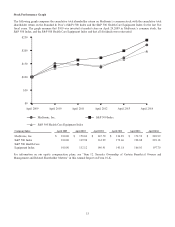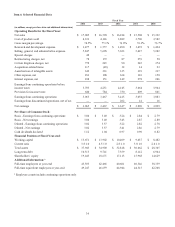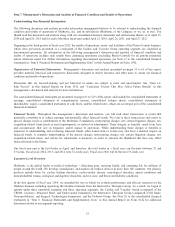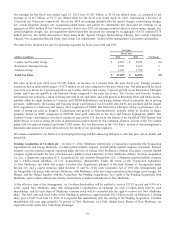Medtronic 2014 Annual Report Download - page 34
Download and view the complete annual report
Please find page 34 of the 2014 Medtronic annual report below. You can navigate through the pages in the report by either clicking on the pages listed below, or by using the keyword search tool below to find specific information within the annual report.We are subject to a variety of market and financial risks due to our international operations that could adversely affect those
operations or our profitability and operating results.
Our operations in countries outside the U.S., which accounted for 46 percent of our net sales for the fiscal year ended April 25,
2014, are accompanied by certain financial and other risks. We intend to continue to pursue growth opportunities in sales
outside the U.S., especially in emerging markets, which could expose us to greater risks associated with international sales and
operations. Our profitability and international operations are, and will continue to be, subject to a number of risks and potential
costs, including:
•local product preferences and product requirements,
•longer-term receivables than are typical in the U.S.,
•fluctuations in foreign currency exchange rates,
•less intellectual property protection in some countries outside the U.S. than exists in the U.S.,
•trade protection measures and import and export licensing requirements,
•workforce instability,
•political and economic instability, and
•the potential payment of U.S. income taxes on certain earnings of our subsidiaries outside the U.S. upon
repatriation.
In particular, the Obama Administration has announced potential legislative proposals to tax profits of U.S. companies earned
abroad. While it is impossible for us to predict whether these and other proposals will be implemented, or how they will
ultimately impact us, they may materially impact our results of operations if, for example, our profits earned abroad are subject
to U.S. income tax, or we are otherwise disallowed deductions as a result of these profits.
Finally, changes in foreign currency exchange rates may reduce the reported value of our foreign currency revenues, net of
expenses, and cash flows. We cannot predict changes in currency exchange rates, the impact of exchange rate changes, nor the
degree to which we will be able to manage the impact of currency exchange rate changes.
Our international operations expose us to legal and regulatory risks, which could have a material effect on our business.
In addition to market and financial risks, our profitability and international operations are, and will continue to be, subject to
risks relating to changes in foreign medical reimbursement programs and policies and changes in foreign legal and regulatory
requirements. In addition, our international operations are governed by various U.S. laws and regulations, including FCPA and
other similar laws that prohibit us and our business partners from making improper payments or offers of payment to foreign
governments and their officials and political parties for the purpose of obtaining or retaining business. Global enforcement of
anti-corruption laws has increased substantially in recent years, with more frequent voluntary self-disclosures by companies,
aggressive investigations and enforcement proceedings by U.S. and foreign governmental agencies, and assessment of
significant fines and penalties against companies and individuals. Our international operations create the risk of unauthorized
payments or offers of payments by one of our employees, consultants, sales agents, or distributors, because these parties are not
always subject to our control. It is our policy to implement safeguards to discourage these practices. However, our existing
safeguards and any future improvements may prove to be less than effective, and our employees, consultants, sales agents, or
distributors may engage in conduct for which we might be held responsible. Any alleged or actual violations of these regulations
may subject us to government scrutiny, severe criminal or civil sanctions and other liabilities, including exclusion from
government contracting, and could negatively affect our business, reputation, operating results, and financial condition. In
addition, the government may seek to hold us liable for successor liability FCPA violations committed by any companies in
which we invest or that we acquire.
Consolidation in the health care industry could have an adverse effect on our revenues and results of operations.
Many health care industry companies, including health care systems, are consolidating to create new companies with greater
market power. As the health care industry consolidates, competition to provide goods and services to industry participants will
become more intense. These industry participants may try to use their market power to negotiate price concessions or reductions
for medical devices that incorporate components produced by us. If we are forced to reduce our prices because of consolidation
26


